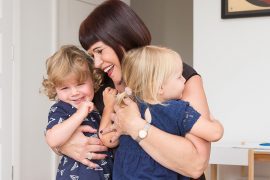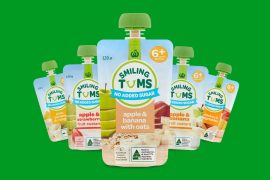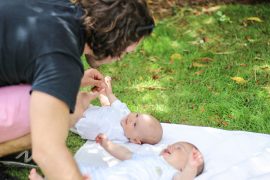So while preventing children from ever feeling pain or upset seems like the kindest thing to do… is it really helpful in the long run?
Regardless of how consciously we are parenting, children are all going to experience emotions like anger, sadness, frustration, or disappointment on a daily basis. When we are quick to dismiss, distract or redirect from emotions, they don’t actually go away, and will continue accumulating in the body, causing more tension, stress and agitation over time.
If there’s no release point, more and more emotions will be building up for our children and we’ll see more and more challenging behaviours as a way of communicating that their system is overloaded and they need our help to process things.
So instead of jumping in to distract, redirect and avert the disaster (aka tantrum).
I found the most helpful approach was actually to face it. Take a deep breath, get super present and give my son my full attention with what he was feeling.
I remember taking my son’s hand one afternoon to stop him bouncing around on the couch beside me, giving him my full attention, eye contact and gently telling him how I could see how hard it was for him. I could see that he was feeling upset. That I understood and was there with him.
Through taking his hand and saying “no” to jumping on the couch, I was simultaneously saying “yes” to all those underlying emotions. And they all came tumbling out.
After being seen and heard in this way, kids will often dissolve into tears or a tantrum.
It may seem like a big disproportionate reaction and that’s because it’s not really about the current situation, it’s about all the other things that have built up under the surface and this moment is serving as a ‘release valve’. Your child is not trying to manipulate you and they really need your emotional support in this moment.
Dr Aletha Solter talks about the healing effect of tears in her book ‘Cooperative and Connected’. She says, “Crying is a beneficial physiological process, which allow people to cope with stress. It’s a natural repair mechanism that we are born with, and people of all ages can benefit from.”
So while we can’t prevent our children from ever feeling pain, upset, disappointment, frustration, fear or anger, the most helpful thing we CAN do is to get comfortable with it.
Learning to do this has been my ‘spiritual practice’ as a mother over the past ten years.
And while your toddler may feel like they’ve been thrown in the deep end at first, it’s your job to make sure they know they’re not alone. With a loving adult to help them process their big emotions, release all the stress hormones, tension and emotions they’re bottling up, they’re going to feel so much calmer, more relaxed, more loving, more affectionate and able to enjoy this very special family transition.
Belinda Connelly works with mums as a conscious parenting mentor. She is passionate about nurturing the emotional wellbeing of young children and creating a safe space for all of their feelings, and supporting mums with this. She is a mum to two beautiful boys (10 & 6) and has 18 years’ experience as an early childhood teacher.










